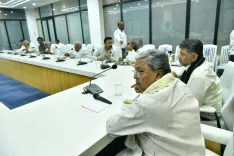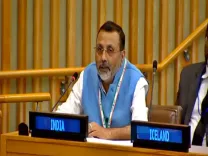How Will GST Reforms Enhance Mizoram's Economic Landscape?

Synopsis
Key Takeaways
- GST reduced to 5% for key products.
- Boosts local farmers and artisans.
- Enhances tourism affordability.
- Promotes job creation in rural areas.
- Strengthens export competitiveness.
New Delhi, Oct 13 (NationPress) Recent changes in GST 2.0 are set to significantly benefit the economy of Mizoram by reducing GST rates on essential products like Mizo Bird’s Eye Chilli, ginger, turmeric, bamboo and cane goods, processed fruits, and tourism services, according to government announcements made on Monday.
These reduced tax rates will lead to lower costs, enhanced domestic consumption, and improved market competitiveness, providing substantial advantages to farmers, bamboo artisans, and tourism businesses, as highlighted in an official statement.
The reforms aim to decrease the GST on these spices, bamboo and cane products, processed fruits, and tourism services to just 5 percent. This also encourages branding, value addition, boosts export competitiveness, and generates employment opportunities in rural and semi-urban regions.
The Mizo Bird’s Eye Chilli, recognized as a GI-tagged organic crop, helps augment household incomes and is breaking into new international markets. Small-scale food processing and pickle operations associated with the chilli are also creating jobs, typically employing around 10 to 12 individuals per unit, the release stated.
In the 2020–21 period, Mizoram produced about 10,918 metric tonnes of this chill, with research in Aizawl district revealing an average gross income of Rs 1.57 lakh per hectare.
Mizoram is India's third-largest producer of passion fruit, and processing of this fruit has opened up new entrepreneurial avenues in juice and concentrate manufacturing, providing additional income streams for farmers and women’s groups.
By reducing GST on processed fruit products to 5 percent, small-scale processing facilities will benefit, leading to job creation and improved marketability.
Bamboo, which occupies nearly 51 percent of the state's land, supports handicrafts and cottage industries. Establishing a consistent 5 percent GST on bamboo furniture and crafts will make these products more affordable and enhance Mizoram’s position in the national handicraft sector.
With room rates up to Rs 7,500 now taxed at 5 percent and reduced input costs for service providers, these reforms are set to make travel to Mizoram more affordable for visitors in the state’s flourishing tourism sector.









